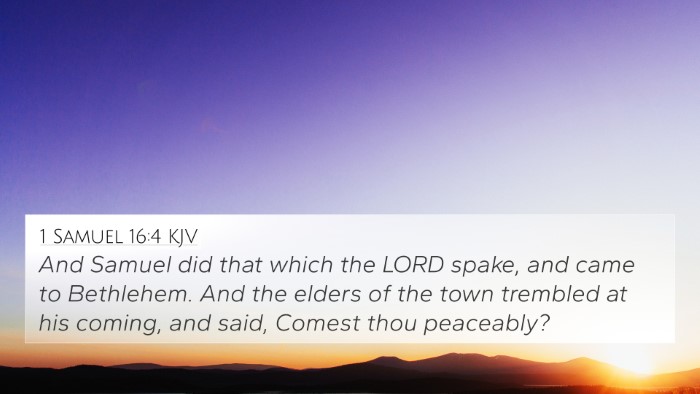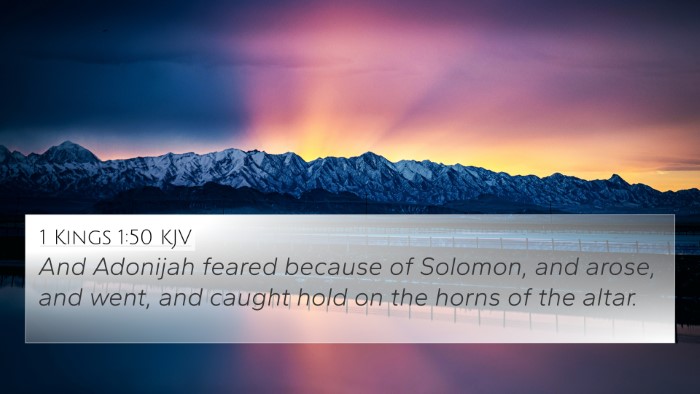Old Testament
Genesis Exodus Leviticus Numbers Deuteronomy Joshua Judges Ruth 1 Samuel 2 Samuel 1 Kings 2 Kings 1 Chronicles 2 Chronicles Ezra Nehemiah Esther Job Psalms Proverbs Ecclesiastes Song of Solomon Isaiah Jeremiah Lamentations Ezekiel Daniel Hosea Joel Amos Obadiah Jonah Micah Nahum Habakkuk Zephaniah Haggai Zechariah MalachiVerse
1 Kings 2:1 1 Kings 2:2 1 Kings 2:3 1 Kings 2:4 1 Kings 2:5 1 Kings 2:6 1 Kings 2:7 1 Kings 2:8 1 Kings 2:9 1 Kings 2:10 1 Kings 2:11 1 Kings 2:12 1 Kings 2:13 1 Kings 2:14 1 Kings 2:15 1 Kings 2:16 1 Kings 2:17 1 Kings 2:18 1 Kings 2:19 1 Kings 2:20 1 Kings 2:21 1 Kings 2:22 1 Kings 2:23 1 Kings 2:24 1 Kings 2:25 1 Kings 2:26 1 Kings 2:27 1 Kings 2:28 1 Kings 2:29 1 Kings 2:30 1 Kings 2:31 1 Kings 2:32 1 Kings 2:33 1 Kings 2:34 1 Kings 2:35 1 Kings 2:36 1 Kings 2:37 1 Kings 2:38 1 Kings 2:39 1 Kings 2:40 1 Kings 2:41 1 Kings 2:42 1 Kings 2:43 1 Kings 2:44 1 Kings 2:45 1 Kings 2:46







